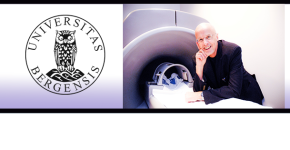Month: November 2014
-

Bruce Logan, Penn State – Spit Power
Chemists at Penn State University and Saudi Arabia’s King Abdullah University have discovered that small medical testers—things like glucose and ovulation sensors—could soon be powered by your own saliva. – Vocativ.com (4.22.2014) This sounds like science fiction, but Bruce Logan, a biomedical engineer at PSU, is unlocking the power held in saliva. Dr. Bruce Logan is…
-

Jeffrey Fortin, Emmanuel College – Historical Identity Theft
Identity theft usually brings to mind thoughts of stolen credit cards or misappropriated bank accounts. But, Jeffrey Fortin, assistant professor of history at Emmanuel College, will tell us about an intriguing example of historical identity theft dating back to the early 1800s. Born in Hawai’i, Dr. Jeffrey Fortin learned to walk while aboard a sailboat,…
-

Michael Jenkins, University of Scranton – Fighting Crime with Data
We’re living in the era of “Big Data” and it’s vital to adapt with the changing technological trends or risk falling behind. Dr. Michael Jenkins, an assistant professor of criminal justice at The University of Scranton, analyzes the role Big Data will play in fighting crime. Michael Jenkins was named assistant professor of criminal justice.…
-

Jason Silverman, Winthrop University – Abraham Lincoln & Immigration
Lately, the topic of immigration is in the news every single day. In today’s Academic Minute, we turn to history as Jason Silverman of Winthrop University discusses Abraham Lincoln’s stances on the subject. A specialist in the history of the Old South and Civil War, Dr. Jason Silverman received his undergraduate degree at the University…
-

Allison Redlich, University at Albany – Mental Health Courts
“There is consistent evidence that MHCs reduce arrests and number of days in jail, however the mechanisms by which MHCs produce these reductions are entirely unclear,” said Redlich. “One presumption held by MHCs is that untreated mental illness causes criminal behavior, and that by treating the illness, criminality will decrease. However, this presumption lacks empirical…
-

James Hanna, Virginia Tech – The Physics of Whirling Dervishes
Scientific inspiration sometimes comes from strange places. James Hanna, professor of mechanics at Virginia Tech, is studying the physics of whirling dervishes. James Hanna is a mechanician interested in the dynamics of very flexible structures, such as ropes, chains, flags, leaves, and paper. Dr. Hanna is an assistant professor in the department of Engineering Science…
-

Douglas Kerr, University of Hong Kong – Modern Insights on Sir Arthur Conan Doyle
Viewing Sherlock Holmes and his creator Sir Arthur Conan Doyle through a modern lens opens up some very interesting interpretations. In today’s Academic Minute, Douglas Kerr, professor of English and dean of the faculty of arts at the University of Hong Kong, discusses the legendary author’s work with a contemporary context. Douglas Kerr was born…
-

Jack Ridge, Tufts University – Geologic Time
The Earth is a few billion years old and a lot has transpired during that time. Dr. Jack Ridge, professor and chair of the Department of Earth and Ocean Sciences at Tufts University, is working to more precisely understand geologic time in order to create an accurate record of the planet’s climate. Dr. Jack Ridge‘s…
-

Kenneth Hugdahl, University of Bergen – Auditory Hallucinations
There are quite a few films that utilize auditory hallucinations as a indicator of a character’s mental illness. Colloquially known as “hearing voices,” this is a very real problem for some people. In today’s Academic Minute, Dr. Kenneth Hugdahl, a professor of biological psychology at Norway’s University of Bergen, discusses this intriguing and misunderstood affliction.…

